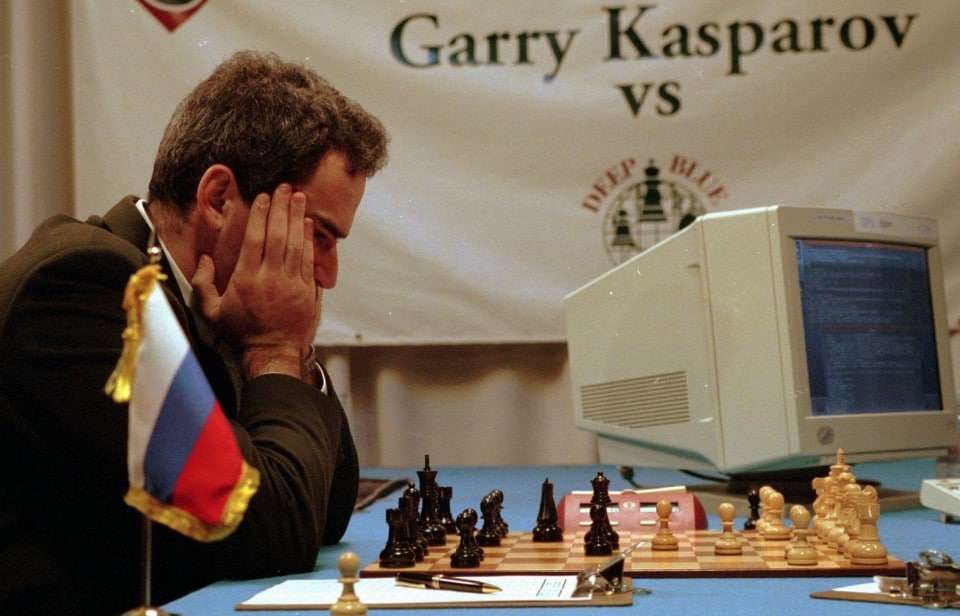The Volokh Conspiracy
Mostly law professors | Sometimes contrarian | Often libertarian | Always independent
Human vs. machine contests (real or fictional) -- but involving ordinary humans

I'm looking for a famous (or at least interesting) human vs. machine contest to use as an analogy in an article. The one that of course comes to mind is John Henry vs. the steam drill, but John Henry was so unusually strong that the contest was pointless: To succeed, the steam drill didn't have to beat John Henry, since no railroad could have a work force of John Henrys - instead, the steam drill just had to beat the ordinary steel-driving man. (Indeed, the steam drill might succeed even if it was less effective than the ordinary man, if it was still cheaper and thus more cost-effective; but let's set that aside.)
Likewise, Garry Kasparov vs. Deep Blue was a good test of whether a machine could beat the best chess players, and that might make sense for fundamentally non-utilitarian tasks such as playing chess. But I'm looking for something which measures as a machine's practical utility, and that would need to be a contest against ordinary human workers.
Anything comes to mind? The winner will get … heartfelt thanks! Acknowledged in a footnote in a law review article, yet! (And of course in a blog post.)
Extra points for submissions that provably come from AI programs.
UPDATE: The broader discussion in the comments is very interesting, and I don't want to derail it; but if someone can point to specific contests in which a human was matched up against a machine to see who does better (as with John Henry vs. the steam drill, but with ordinary humans rather than extraordinary ones), that would be especially helpful. (I originally asked for "competitions," and while I meant contests - specific events - I think some people interpreted this as referring to broader processes of competition.)


Show Comments (0)